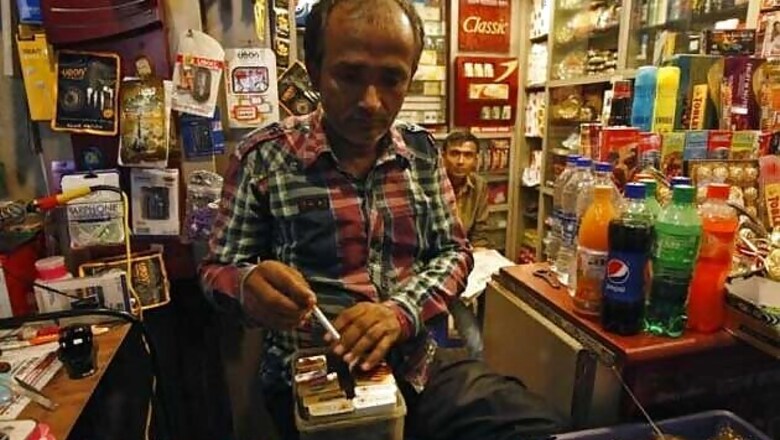
views
New Delhi: Tobacco companies in India will have to stamp health warnings across 85 per cent of the surface of cigarette packs and other products, the Health Ministry said on Wednesday, joining nations such as Thailand and Australia with stringent marketing rules.
Up to 9,00,000 Indians die every year of diseases related to tobacco use, the government said in 2010. That number could reach 1.5 million by 2020 if users cannot drop the habit, the International Tobacco Control Project estimates.
Besides illustrations showing the negative effects of smoking, packets will be required to carry the word "WARNING" and the phrase "Smoking causes throat cancer", the Health Ministry said. Similar warnings would be required on other tobacco products.
"(This) will tell each and everyone, including potential users of cigarettes, that tobacco means nothing else except death," Health Minister Harsh Vardhan said.
"The war against tobacco consumption is very important for everybody to win."
The new rules take effect from April 1 next year and mandate printed warnings on the front and back of the packages, the ministry said.
They require 60 per cent of the pack's surface to carry pictorial warnings, with written warnings on another 25 per cent. Currently, 20 per cent of the surface is covered in warnings, according to a recent report.
India ranked 136th on a list of 198 countries that use pictures on packs to warn off smokers, the report said.
Thailand, Australia and Uruguay all require that 80 per cent or more of the surface of a cigarette packet be covered with warnings. Australia has adopted plain packaging to prohibit display of a tobacco company's logos.
Tobacco problem
Other than cigarettes, Indians consume tobacco in several forms, including chewing tobacco called 'gutka' and hand-rolled traditional cigarettes called 'beedis'. Several states have imposed a ban on gutka sales.
But such bans and several other anti-tobacco and smoke-free laws have not been implemented effectively, leaving Indians vulnerable to addiction and ill health.
In 2011, tobacco-related diseases suffered by people aged between 35 and 69 cost the economy more than 1.4 trillion rupees ($23 billion), the government said.
Tobacco control activist Shailesh Vaite welcomed the packaging move, saying it would deter people from consuming tobacco products. However he called for more steps, including higher taxes and a ban on advertising at counters selling them.
"This will reduce the appeal of such products and attacks one of the last advertising avenues for the tobacco industry," said Vaite, who is also a member of the Framework Convention Alliance for Tobacco Control, a group of more than 350 global organisations.
"If there is a stronger reaction (from companies), we would like the government to hold its ground," he said.
ITC Ltd, India's biggest cigarette maker, and Godfrey Phillips, another manufacturer, declined to comment on the Health Ministry's notification.
Tobacco Institute of India (TII), a body representing the cigarette industry, complained the industry was not consulted before passing the notification.
"The proposed warnings are unreasonable, drastic and impractical to implement and enforce," TII's director Syed M Ahmad said.




















Comments
0 comment